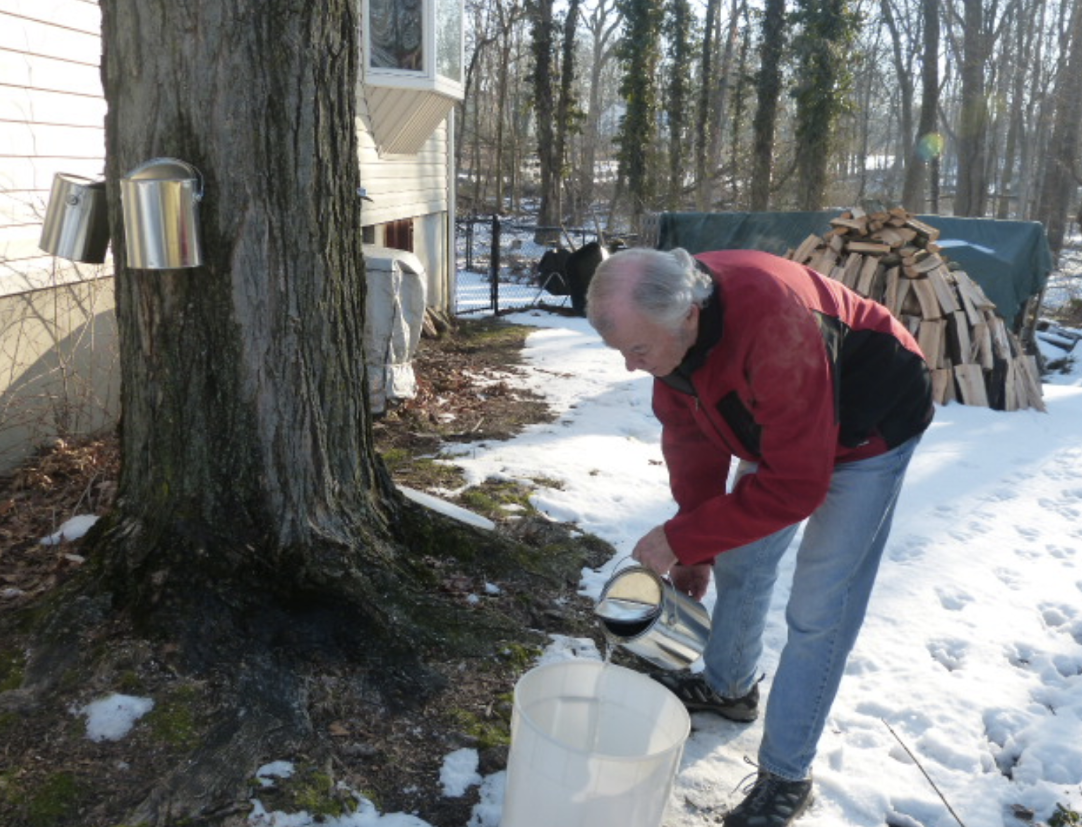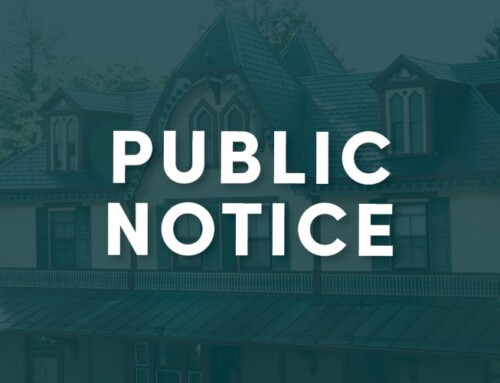Dean Talcott is a Fanwood resident and environmentalist. Over a number of years, he has also developed a passionate interest in maple sugaring. Today, he shares with the Borough what draws him to his favorite hobby:
Maple Sugaring in Fanwood
by Dean Talcott
Winter 2019 will be my 7th year of maple sugaring. Last year, I had my best season ever – making about one gallon of syrup!
Before I started tapping into my silver maples, I researched the topic and spoke with someone who did this at a nature center. Sugar maples are the best trees to tap, but there aren’t many around this area. Instead, I use my 2-30″ diameter silver maples. I’ve also tapped my neighbor’s 2 red maples, but they didn’t yield as much sap.
The maple sugaring process is simple. The tree should have a minimum diameter of 10″. I use a 3/8″ drill bit and drill about 2″ into the tree and around chest-high. Then, I place a “spile” into the hole and tap it lightly with a hammer to secure it. For every additional 10″ of diameter, you can install another spile, which can be purchased from local nature centers. It works best on the south side of the tree.
The right time to tap into the tree is usually the end of January, but can sometimes be as early as mid-January. The weather should be freezing at night and above freezing during the day. The period of maple sugaring lasts about 4 weeks. After that time, there is less sugar in the sap. To catch the sap as it drips, I use new paint cans that have been sanitized. It usually runs for a few days and then stops, with 4 or 5 runs per season.
The time-consuming part, however, is boiling the sap to evaporate off the water. My first year, I used the side burner of my propane grill, which took 6 hours. My second year, I bought a 30,000 BTU burner and cut that time down to 3 hours.
The process goes like this: I boil 4 gallons of sap down to a pint of syrup and pour the syrup through 2 layers of cheesecloth. When the season is over, I pour the syrup into clean mason jars and store them in a refrigerator.
Maple sugaring is my midwinter hobby and I always look forward to a fresh season. I don’t do this for money, though. The real value is in the experience of sharing this passion with others. Besides having delicious maple syrup, I get to talk about it when I’m teaching 4th graders for the Rutgers Master Tree Stewards. If you would like to find out about the Master Tree Steward program, please contact Jim Nichanadowicz at Rutgers Cooperative Extension of Union County at 908-654-9854 or by email at jnichnadowicz@ucnj.org.
A big thank you to our Fanwood neighbor, Dean, for sharing some interesting information with us! Want to share yours with the Borough? Visit the contact page.


